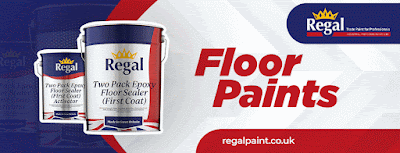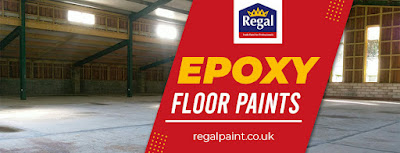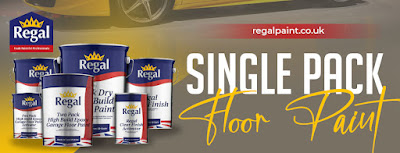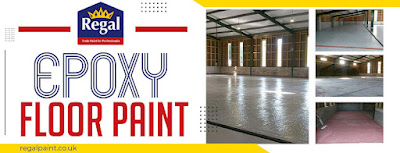Epoxy paint is a strong option when it comes to defending and improving
the appearance of your garage floor. Beyond its vivid hues and shiny surface is
a world of science that turns a straightforward coating into a durable
protection. In this investigation, delve deeply into the science of epoxy garage floor paint to
reveal its complex chemical makeup, go over its special characteristics, and
comprehend how it produces a surface that is not only attractive but also
long-lasting and resilient.
Basics of Understanding Epoxy
Polymers, which are made of lengthy chains of repeating molecules, are
one type of substance that includes epoxy. There are two main parts to it:
resin and hardener. When these two ingredients are combined in a particular
ratio, the magic happens. Curing, a chemical process that turns the liquid
mixture into a solid, cross-linked polymer structure, is what happens as a
consequence.
The Molecule Dance: Curing Process
Epoxy cures by a finely orchestrated dance of molecules, especially when using single pack floor paint. Cross-linking refers to the reaction between the molecules of the hardener and the resin, a crucial step enhanced by the inclusion of single pack floor paint. Strong chemical linkages are formed in the process, creating a three-dimensional network that's even more fortified when single pack floor paint is utilized. The liquid epoxy mixture transforms into a solid with exceptional strength and durability as these linkages form, aided by the innovative properties of single pack floor paint.
Chemical Bonds and Covalent Cross-Links to Increase Durability
Epoxy's chemical composition is what gives it its remarkable tenacity.
The epoxy molecules are tightly bound together by the super-strong covalent
cross-links that form during curing. A thick and solid surface that can endure
large loads, collisions, and the normal wear and tear associated with garage
spaces is produced by this network of linked molecules.
Chemical Attack Resistance: Impenetrable Shield
The Epoxy Floor Paint's resistance to chemicals and liquids is one of its
distinguishing qualities. Oil, gasoline, and other solvents are all prevented
from penetrating the concrete underneath by the cross-linked structure of
epoxy. Epoxy's hydrophobic properties and tight molecular structure both
contribute to its resistance to spills and leaks, making these areas good
applications for epoxy.
Managing Temperature Fluctuations and Thermal Expansion
Garages frequently experience temperature changes, from icy winters to
sweltering summers. Epoxy's low coefficient of thermal expansion is what allows
it to tolerate these extremes. As a result, epoxy doesn't dramatically expand
or contract as temperatures vary, lowering the possibility of cracking and
peeling over time.
Concrete and Adhesion that Defies Gravity
Epoxy must successfully connect with the concrete underneath it to
create a surface that is both robust and durable. Epoxy's chemical composition
guarantees a solid mechanical connection with the concrete base. The epoxy
molecules enter the concrete pores during the curing process and, when they
harden, establish a solid link. The epoxy coating won't eventually flake or
delaminate because of its adherence.
Beyond Defence: Aesthetic Allure
Epoxy's chemical composition places a strong emphasis on toughness and
resistance, yet it also has a pleasing appearance. In addition to improving the
garage's aesthetic appeal, epoxy's glossy coating also has practical benefits.
Epoxy's smooth surface makes it simpler to maintain and clean, which helps to
keep debris like dirt, dust, and grime from building up.
The Final Product Is A Chemistry Masterpiece
Recognizing the chemical artwork that lies beneath your freshly
epoxy-coated garage floor is important when you take a step back and enjoy it.
Epoxy garage floor paint transforms a surface into a durable piece of beauty
through a perfect symphony of chemical reactions and molecular connections. Its
capacity to survive everyday use, fend off pollutants, and keep its shiny sheen
is proof of how science can improve our living quarters.
Why Can You Choose Regal Paint?
We produce Regal Paints in their Stoke-on-Trent facility. Epoxy floor
paint, concrete floor paint, quick-drying floor paint, garage floor paint, and anti-slip
floor paint are all part of our selection. Suited for usage in commercial
garages, MOT stations, showrooms, chemical plants, storage facilities, kennels
and catteries, warehouses, factories, commercial garages, and more.
A fascinating excursion into the realm of polymers, bonding, and
chemical reactions is the chemistry behind epoxy garage floor paint.
Epoxy is a prime example of the chemistry and utility meeting at the point when
a liquid combination becomes a robust surface. The complex interplay of
molecules, the development of covalent cross-links, and the unbreakable bond
with concrete provide a surface that is both aesthetically striking and
designed to withstand the rigors of garage life. You are not simply entering a
place when you enter your renovated garage; rather, you are stepping upon a
chemical canvas that is both powerful and aesthetically pleasing.













